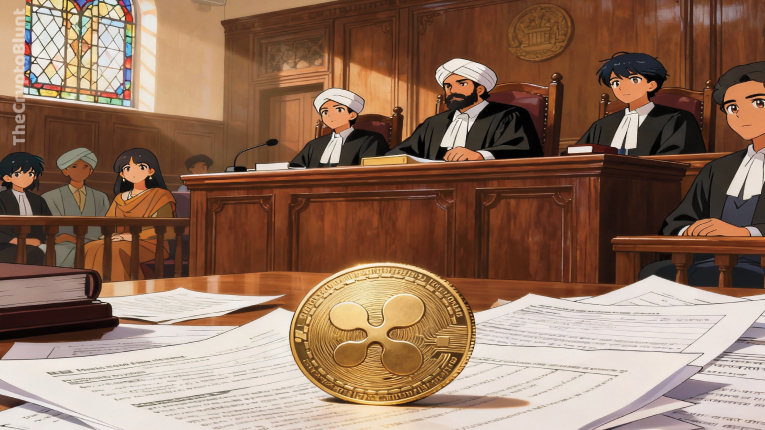WazirX was prohibited by a judge from reallocating client XRP connected to a cyberattack, and crypto was affirmed as property. The reason this holds significance for asset custody globally is important.
WazirX was prevented by a Madras High Court judge from reallocating a client’s XRP reserves, and cryptocurrency was proclaimed to qualify as property under Indian law, which is establishing a precedent that might transform how exchanges manage user holdings during insolvency proceedings across various jurisdictions.
As was reported by The Times of India on October 25, it was ruled by Justice N Anand Venkatesh that the firm managing WazirX cannot redistribute, apportion, or reallocate 3,532.30 XRP coins belonging to Rhutikumari, who acquired the assets by sending money from her Chennai bank account.
An interim injunction was granted by the court after jurisdiction was found, notwithstanding WazirX’s assertion that a reorganization scheme overseen by the Singapore High Court governed the issue.
“Cryptocurrency is treated as a virtual digital asset, and it is not treated as a speculative transaction.”
Justice Venkatesh stated:
Section 2(47A) of the Income Tax Act, which regulates virtual digital assets, was cited by the ruling, and it was found that cryptocurrency “is capable of being enjoyed and possessed (in a beneficial form) and is capable of being held in trust.”
It was maintained by WazirX that the platform does not possess crypto wallets and that all users would be granted pro rata compensation through a three-stage procedure overseen by Singapore’s high court after a security breach that ceased withdrawals.
It was asserted by the exchange that the Madras High Court did not possess jurisdiction because the arbitration had been seated in Singapore.
That stance was rejected by the court. It was noted by Justice Venkatesh that Rhutikumari transferred funds from India and accessed the platform from within the nation; consequently, it was established that a portion of the cause of action originated within the Madras High Court’s geographical authority.
Crypto holdings are treated by the decision as individual property rights instead of uncollateralized claims within an insolvency fund.
Recognition of XRP as Property Could Impact Cases in Other Courts
Crypto is routinely treated as property for remedial purposes by courts in the US, although regulatory classifications are varied by different agencies.
A temporary restraining order over stolen USDC was issued by the New York state court in the LCX case, and service by NFT was authorized. Wallets are frozen and crypto is seized by federal courts under Rule 65 and civil forfeiture statutes.
Redress against exchanges is contingent upon the contractual framework: clients who are holding assets in omnibus or “Earn” schemes that shift ownership recuperate less than those with appropriate custody agreements, where platforms are acting as bailees, as was observed in the Celsius Earn judgment.
Crypto is recognized as property by English courts, and proprietary injunctions, freezing orders, and Bankers Trust disclosure against exchanges, even those situated abroad, are granted.
The legal structure was established by AA v Persons Unknown in a Bitfinex ransomware situation, while it was applied to a Binance case by Fetch.ai v Persons Unknown.
It was confirmed by LMN v Bitflyer that disclosure directives can extend to foreign exchanges. Parliament took action to formalize digital-asset property notions following the Law Commission’s 2023 report, thereby reinforcing the legal framework for such mandates.
Proprietary and worldwide freezing injunctions over stolen crypto were granted by Singapore’s High Court in CLM v CLN, and NFTs and tokens were recognized as property. Furthermore, in Bybit v Ho Kai Xin, it was confirmed that crypto can be held on trust. This legal tenet is pertinent when users contend that an exchange or an insider possesses assets on their behalf.
Trust concerns in exchange environments were first highlighted by Quoine v B2C2. The property examination was refined by subsequent litigation to bolster more robust client safeguards.
India is aligned by the Madras judgment with legal systems that emphasize property rights over pooling arrangements in instances where exchanges are confronting financial failure or reorganization.
By the decision, it is established that crypto acquisitions generate enforceable property rights instead of merely contractual assertions. This may curtail the manner in which platforms reallocate user assets during fiscal difficulty and elucidate that domestic courts preserve authority over holdings accessed and financed locally, irrespective of the location where corporate reorganization activities are conducted.
















